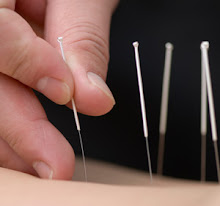Again, a little bit off the usual tea topic, I thought I would would sing the praises of a medicinal herb. It's a real favourite of mine, wŭ wèi zĭ or schisandra fruit.
The first place to look if you really want to get to know a herb is in the classics. Chinese medicine has arguably been going more backwards than forwards since the Han dynasty. The majority of herbal formula still used today originate from this time and many modern formulas are based on classical ones (you can instantly tell the ones that don't). Zhang Zhong Jing, the author of the Han classic the Shang Han Lun, took his knowledge straight from the Shen Nong Ben Cao Jing, and it is in this classic we first examine this herb.
Wu Wei is sour and warm. It mainly boosts the qi, treating cough and counterflow qi ascent, taxation damage, and languor and emaciation. It supplements insufficiency, fortifies yin, and boosts male's essence. It grows in mountains and valleys.
Although it has a sour energetic, it actually has all the five tastes on the palette, hence the name one presumes. Sour is the representative taste of the wood element the theory classic, the Nei Jing, tells us that sour tonifies the metal element. You can imagine the movement of sour being analogous to breathing in, it is an inward, conserving dynamic. Certainly when you breath in you are boosting your qi via the lung (lung being a metal element organ) and if you don't believe me I suggest you reverse the process by breathing out and go for a sprint.
Zhang Zhong Jing primarily used schisandra as a modification herb, it was added to formula if certain symptoms were present and in the case of schisandra it was used for coughing. Throughout the Shang Han Lun you see it paired with dried ginger and wild chinese ginger which added the effect of drying and warming the lung for wet coughs.
It supplements insufficiency, fortifies yin, and boosts male's essence.
Broadly speaking, yin is a term for material bodily fluids and essence relates to sexual fluids. But from a Chinese perspective how does this work? Using a five element model we already understand that the sour dynamic tonifies the metal element. Part of that element is the lung and the concept that the lung is the upper source of water in the body and that the metal element is in charge of downward movement. When we tonify metal we are able to manifest water and descend it downwards towards the kidney, resonant with the water element and sexual function. This is a classic example of the five element sheng 生 cycle where metal gives birth to water.
I love this herb, it tackles cough very well and also gives off a nice dark fruit flavour to formula. TCM practitioners also note it's ability to curb sweating, stop diarrhea, spermatorrhea and many more uses. I'm a bit old school so I'm keeping with it's original Han dynasty use.




Really enjoy your blog, and I welcome posts like these about more TCM-related themes. With your pu-erh and TCM interests I'm guessing you might be just the person I'm looking for! I recently tried a 2005 sheng (the 2005 Dehong Purple Tips, reviewed by several others) and was surprised to find several whole cloves mixed in with the leaves I had pried from the brick. I spied another clove wedged in at another part of the brick, as well. I did some googling and found that cloves are sometimes used in TCM, including in certain herbal teas, but failed to find anything specific about cloves and pu-erh. I don't suppose you have any information on this you could enlighten me with?
ReplyDeleteThanks for reading and posing a tricky question.
ReplyDeleteCloves, or 丁香 Ding Xiang, do have a place in TCM but they are rarely used. In a nutshell they warm the stomach and direct the flow of the GI tract downwards, something which a lot of herbs probably do a bit better. Classic symptoms of the reversal of GI flow would be nausea, vomiting and hiccups!
From an energetic perspective tea is cool to cold, pu erh being cool and green tea being cold. No matter how much you age or roast a tea I think it will still be on the cool side of neutral. Cloves have a warm energetic and thus could of been added to counteract the cold nature of the tea. In doing so I presume they thought that the taste of the cloves also added something, but it's a bit gimmicky sounding no?
Sorry that I don't have a straight answer for you.
The tea with the cloves did have a distinct warming sensation in my stomach. I wasn't sure if that was due to the cloves or the cha qi, and I wondered if perhaps the cloves had been added to mimic a qi-like effect. Great information to have about the use and effect of cloves!
ReplyDeleteThere are several herbs in the same category of 'warm interior, expel cold' but most would decimate the taste of the tea with herbs like dried ginger and sichuan peppers. A more moderate tasting herb would be aconite but since it is highly toxic when unprepared you'd think twice about drinking any tea with it in! Fantastic herb though...
ReplyDelete